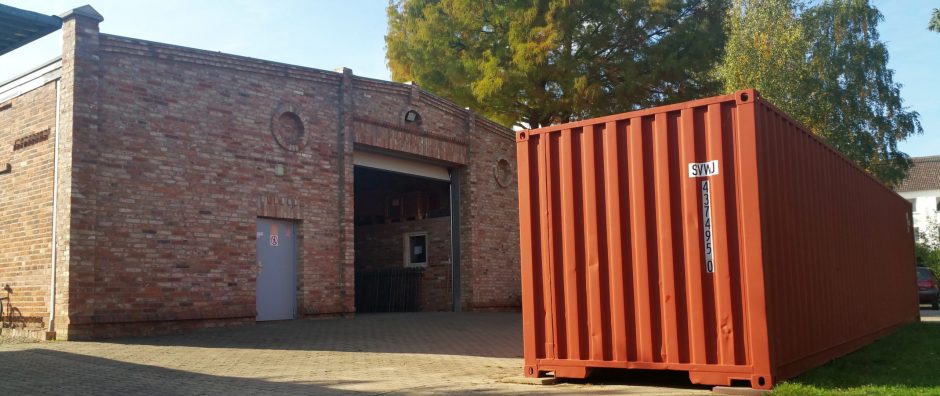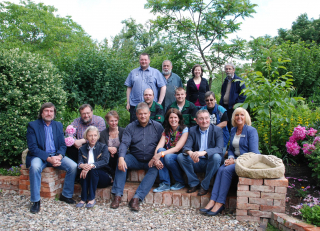On June 13, the city of Hildesheim presented the BIWAQ project to the press. Many of our former employees were taken on by the project and have since been able to work in peace for a period of three years. Of course, it would be better if it was permanent, but we are happy as it is.
It is noteworthy that the funds for the project do not come from the budget of the Federal Ministry of Labor – which would also be astonishing, as cuts are being made there.
The picture below shows representatives of the city, the job center, the cooperation partners and our colleagues.
The following text was written by the city’s press office:
“The “Socially Integrative City” urban development program supports the development of disadvantaged districts. This includes investments in the renovation of buildings, the residential environment and infrastructure. In Hildesheim, Drispenstedt and the Fahrenheit area have been included in this investment support from the federal and state governments since 2001 and 2003 respectively and benefited greatly from it until its conclusion in 2009.
In order to comprehensively improve the local living situation and tackle the causes of unemployment and educational disadvantage, further supplementary offers for participation, employment, education and training are required. This is where the federal program “Bildung, Wirtschaft, Arbeit im Quartier (BIWAQ)”, which is financed by the European Social Fund and federal funds, comes in. The program combines urban development investments with labour market policy measures. The focus is on projects tailored to the specific needs of a neighborhood, which are implemented in cooperation with existing local structures.
In the second funding round, the program has been supplemented by the new field of action “neighbourhood work”. The aim is to expand neighborhood-related employment measures in the non-profit sector. In this way, the cooperation between urban development and labour market policy is to be strengthened and people’s commitment to their district increased. Neighborhood-related employment relationships subject to social insurance contributions are funded for up to three years.
The city of Hildesheim applied for the second funding round with a project for neighborhood work and received a positive decision. A total of around 990000 euros in funding from the federal government and the European Social Fund will flow to Hildesheim for the project until October 2014. A total of 600 projects applied for the second funding round, 92 were approved for funding. The project sponsor has to make a contribution of its own, which is not monetary, but is provided in particular through the provision of two instructor positions as work opportunities by the job center and the personnel expenses of the sponsors for the instruction of the neighbourhood workers.
The Hildesheim project involves setting up a total of 20 neighborhood workplaces with four providers. These sub-projects have the following content:
a) ten places in the horticultural and craft sector, located at Arbeit und Dritte Welt e.V. The focus of the work is the refurbishment and development of a so-called pole forest to the size of 4 hectares in Drispenstedt. This wild forest is to be developed into a recreational forest for the citizens of Drispenstedt. In preparation for this task, the employees will initially be assigned green space maintenance tasks in the urban development areas. These are not compulsory tasks for the city. For example, areas that are in an overgrown or neglected condition will be thoroughly overhauled and redesigned.
b) Six places in the domestic sector, four of which are in the Drispenstedt neighborhood meeting place and two in the KBert children’s and youth restaurant. Neighbourhood workers are introduced to the preparation and portioning of meals and to working in service when organizing lunch and other catering services.
c) Four places at the “Trägerkreis sozialer Mittagstisch Guter Hirt e.V.” The neighborhood workers are deployed in the various areas of responsibility of the “Good Shepherd”, the kitchen, the warehouse, the donation reception and the flea market.
The BIWAQ program therefore has a double benefit for the Socially Integrative City areas: Long-term unemployed people from the areas are temporarily taken on in employment subject to social insurance contributions, receive training and thus increase their chances of being placed in the primary labor market. In doing so, they perform tasks that benefit the neighborhoods in which they live. In this way, the appearance, infrastructure and social services in the Socially Integrative City and urban development areas are strengthened.”

